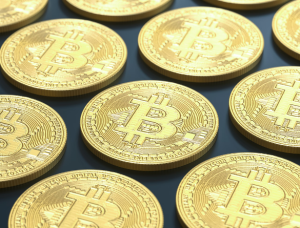
Beyond Bitcoin: Exploring the Diverse Landscape of Altcoins
When Bitcoin was first invented in 2009, it cast the financial world into a huge shift that’s still known today as the ‘cryptocurrency’ era. Its supposedly revolutionary ‘blockchain’ technology unleashed a torrent of new imagination and buzz among investors and techies.
Bitcoin is just the beginning, however. A sprawling, ever-evolving altcoin ecosystem has sprouted around the original ‘white-labeled’ currency, each with unique applications and functionalities far beyond that of Bitcoin. In this article, we’ll take a look at some of these altcoins and the potential they have to reshape the finance industry for good.
Beyond a Store of Value: Altcoins Powering New Use Cases
Bitcoin today is largely being used as a store of value, similar to gold. The online gaming industry is actually quite a useful case study of how Bitcoin is being used – and not being used – today. Online casino gaming, when played competitively, demands a high degree of speed and processing efficiency from the user experience, something that’s pretty hard to achieve when using flat currencies. Bitcoin casino games are really popular because payments are quicker, cheaper, and more efficient than what you’d experience using dollars or British pounds. These currencies provide anonymity and sometimes speedier transactions, too.
But, it’s not just Bitcoin that can provide a superior gaming experience. This is where altcoins come into play. Almost all of them are geared to solving a lot of the problems that people have with flat currencies. Here are just some of the issues that are being solved by altcoins:
Smart Contracts and Decentralised Applications (dApps)
Altcoins can likewise function as smart contracts, or coded agreements, that run automatically through the blockchain and can be programmed to automate other pieces of software (known as dApps), which run without an intermediary.
Say, a decentralized online casino run on a single blockchain-based altcoin, which provides transaction speeds that are a thousand times faster than Bitcoin, and fees that are a fraction of a fraction of a percentage point, and also provably fair gaming, because the blockchain is a transparent ledger of the games that have taken place in the network, etc, etc.
Privacy Coins
Some altcoins afford more privacy. Even more sophisticated cryptographic techniques can be implemented to mask some of the transaction details, appealing to those who want to retain tighter control over their money-management data.
Stablecoins
A third type is stablecoins, backed by something stable: the US dollar, the price of gold, and so forth.
These currencies would be viable in principle for everyday payments in crypto land. If stability can be realized, this should quiet the volatility fears when it comes to everyday payments.
Utility Tokens
Lots of altcoins are utility tokens, that is, tokens that grant access to functionality or services within an ecosystem or platform. For example, the owner of a token that underpins an online gaming platform might be able to spend the token on in-game items or to access extra functionality.
A Decentralized Future: The Potential and Challenges of Altcoins
We’ll go back and forth a lot on this point, but just to summarise: the range of altcoins promises an incredible future of finance. Altcoins are leading to the emergence of Decentralised Finance (DeFi) – a movement for a global financial system built on open-source protocols and peer-to-peer interactions. People could borrow, lend, or trade any financial instrument, without the need for a centralized bank – a key promise of the DeFi movement, enabled by the availability of altcoins and blockchains and the transparency they bring.
Thanks to its low fees and no need for bank accounts, altcoins could also potentially increase financial inclusion and allow people around the world to participate in the global financial network. They will also work to make smart contracts more mainstream, which allows programmable money to be created. This allows new financial products and services to be created for niche market needs.
The Future Unfolds: A Symphony of Innovation
The altcoin world is a multifaceted, changing landscape so it’s something that we all should keep an eye on. We expect that the adoption of this area will change as technology advances and its uses become clearer.
It is not necessarily about who gets to be “The Cryptocurrency”. It could be that the future of those technologies will be a continuation of what it is today, a chain of innovation with many different currencies out there. Bitcoin may remain as a store of value. Stablecoins will underpin everyday transactions. Utility tokens or those specific to particular platforms may flourish. Privacy coins will continue to exist for those who value user anonymity. There is a limitless potential for altcoins; they could ruin fiat currency and existing finance systems.
There is a long way to go until widespread acceptance, and further collaborations will be needed between developers and the finance community to educate users and help these currencies grow.
